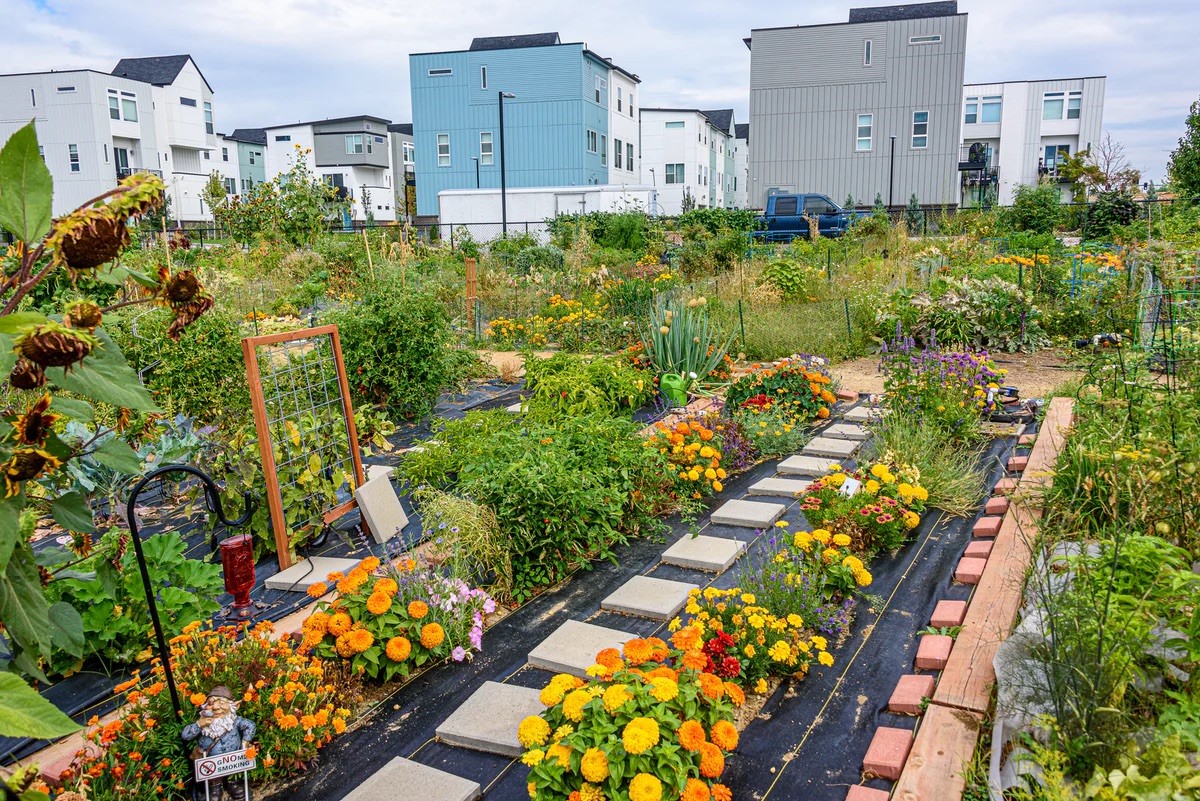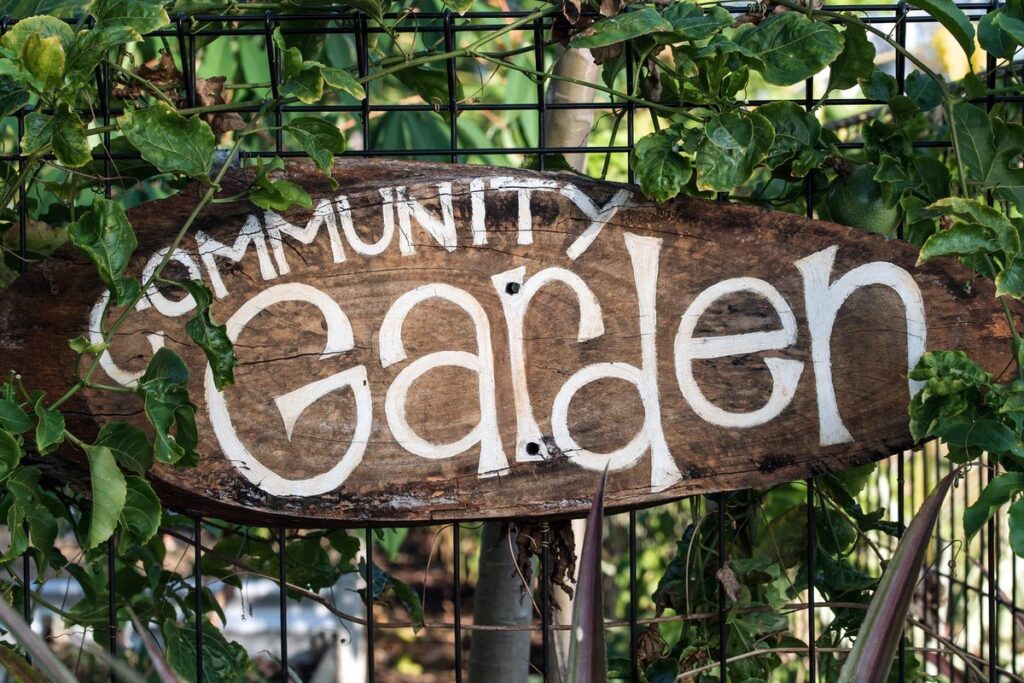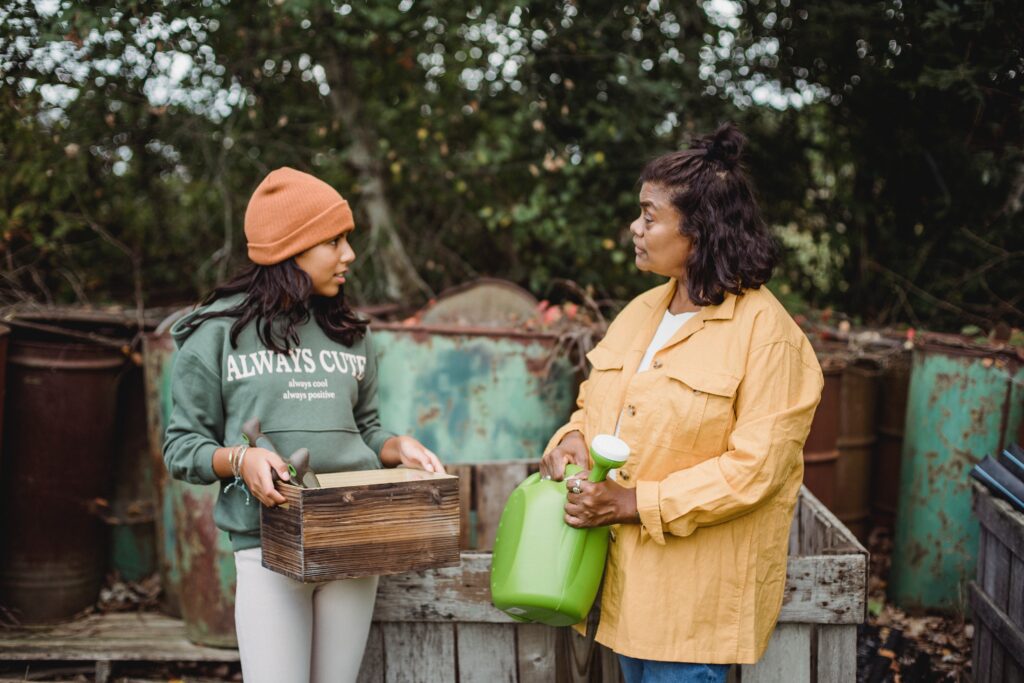
Building Community Resilience With Food Sovereignty
“Food sovereignty is the right of peoples to healthy and culturally appropriate food produced through ecologically sound and sustainable methods, and their right to define their own food and agriculture systems. It puts the aspirations and needs of those who produce, distribute and consume food at the heart of food systems and policies rather than the demands of markets and corporations.” – Declaration of Nyéléni, 2007 Forum for Food Sovereignty in Mali.
The Covid-19 pandemic was a wake up call for many communities around the world as shortages of basic living essentials became the norm. Climate crises will bring forward more pandemics and supply chain issues, which is why it is important to have strong local systems that can provide basic necessities to people during crisis and shortages.
Local food systems are important for community resilience. Eating healthy and planting your own food combats feelings of isolation and emotional, physical, and spiritual disconnection. It also provides many opportunities to create food security, to learn informal land-based education for children, to build networks, to develop community and to learn Indigenous importance of native plants and land. This article explores some of the work being done in this space, and ways that we can all participate in making this a reality.
Localize Food Systems
Food sovereignty connects us to nature by showing us the power we have in food choices and the abundance of nutrients and flavors the Earth provides. We need to focus on eradicating Big Ag mono-crops and supporting local farmers that practice sustainable and regenerative agriculture. An increase in demand for local produce will lower costs for consumers and support the local economy. Kiss the Ground is an amazing documentary that explores this concept from a hopeful and inspiring perspective.
A localized food system would keep all stages, from growing the crops to disposal of the consumed food, within local communities. In short, food would be consumed in the same community that it was produced in. The “perfect” localized food system would have: Small and diverse farms growing and harvesting crops; processing and packaging in reusable boxes and bags; transportation in fuel-efficient or electric vans and trucks; local grocers, restaurants, and farmers selling the produce; and disposal of the produce’s end product going into community compost that will be used by the local farmers to grow their crops. A system like this has many environmental justice benefits for the entire community’s well-being and economic stability.
There is so much food you can grow easily at home, even if you do not have access to garden space. Growing your own food gives you full control over refusing pesticides and harsh chemicals. Herbs can be easily grown in windowsills and larger plants like tomatoes, peppers, and potatoes can grow on balconies or front steps. The most important thing is access to light, or your ability to purchase grow lights for inside. If you have the space and means to plant a full garden on your property, you can feed yourself with fresh produce year round through informed planning and maintenance.
Feed Your Community
Food systems have been disrupted globally due to colonialism. Colonialism brought deliberate degradation of food security systems that were culturally important to the health and survival of Indigenous communities. It is critical that we begin to rebuild these food systems to allow marginalized populations to reconnect with their culture and have secure food systems.
Community gardens offer a safe space for vulnerable and marginalized populations to build community and connections. It is an important tool for low-income families to have so that fresh vegetables and herbs can be a realistic part of their diets. The cost of fresh produce in groceries can make it hard for families to incorporate it in weekly grocery shops when they can purchase cheaper and more filling food instead. The accessibility of community gardens for marginalized populations is important for mental health as well. The act of getting outside and connecting with nature has been shown to decreases stress levels and improve your overall mood.

Creating a free food pantry or fridge allows you to share resources and support community members. It also decreases food waste, while providing relief to your neighbors. Many communities most likely have food pantries and fridges set up, so reach out to local non-profits and activists to see if you can plug into an existing one. Some people in populated areas will set up free garden stands on the sidewalk for passerby’s to enjoy.
Build Knowledge and Skill
Educating communities on the options that exist for them to combat food insecurity is critical in the expansion of localized food systems. Engaging youth with this education is a great way to raise good stewards of the land, and increases the world view and perspectives that the next generation of change makers will have on providing for themselves and their community.
H.O.P.E. Gardens partners with several schools in Michigan to teach students how to plant, grow, and harvest produce. Students share their knowledge of gardening and nutrition with their community by trading seeds and produce with other schools and community members.
There are many college courses available that explore food systems and food sovereignty, which is great because it means that this is a growing topic of conversation. There are even some specific fields of study popping up that will create change makers in this field.
Agroecology is sustainable farming that works with nature. Ecology is the study of relationships between plants, animals, people, and their environment – and the balance between these relationships. Agroecology is the application of ecological concepts and principals in farming.
Afroecology: A form of art, movement, practice and process of social and ecological transformation that involves the re-evaluation of our sacred relationships with land, water, air, seeds and food; (re)recognizes humans as co-creators that are an aspect of the planet’s life support systems; values the Afro-Indigenous experience of reality and ways of knowing; cherishes ancestral and communal forms of knowledge, experience and lifeways that began in Africa and continue throughout the Diaspora; and is rooted in the agrarian traditions, legacies and struggles of the Black experience in the Americas. – The Climate Justice Alliance
Make Decisions Locally
Leah Penniman, co-founder of Soul Fire Farm and author of Farming While Black. “If you don’t have any control over your food system,” Penniman stressed, “it essentially puts you at the whim of a racist, capitalist food system in terms of your basic survival needs.”
We need a comprehensive and local approach to combating food insecurity that “identifies and mitigates the major contributing factors affecting hunger. This includes “thriving wages for all, protections and rights for workers along the food chain, universal school meals, federal legislation that invests in the people creating just, sustainable regional food and farm economies, divestment from Big Ag, investment in Black, Brown and Indigenous farmers and their access to land, seeds and water”.

Two examples of local action for food sovereignty and security are:
-Wyoming’s Food Freedom Act or “cottage food” bill deregulates small exchanges of homemade goods.
-Maine’s food sovereignty law sought to return direct control of the food system to the people who harvest, distribute, and consume food.
This article features 24 organizations that are working on food justice. I encourage you to support these organizations by following them on social media, sharing their information, and donating to their mission if you are able to.
Want to Learn More?
Books:
Translating Food Sovereignty: Cultivating Justice in an Age of Transnational Governance
Land Justice: Re-imagining Land, Food, and the Commons
Black Food Matters – Racial Justice in the Wake of Food Justice
Podcasts:
All My Relations Podcast – Food Sovereignty: A Growing Movement
Native Seed Pod Podcast
Farm to Table Talk – Fighting for Food Sovereignty



